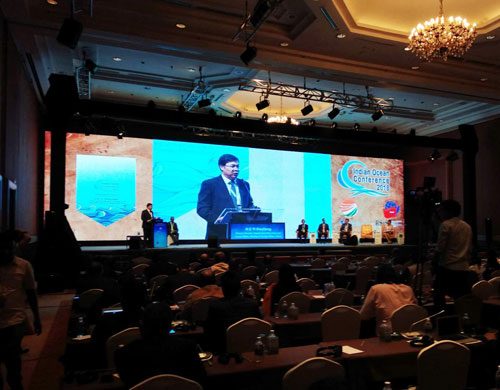
From August 27 to 28, 2018, the third Indian Ocean Congress(IOC)was held in Hanoi, Vietnam. Director-General of the Department of Boundary and Ocean Affair of the Foreign Ministry Yi Xianliang led a delegation to attend the conference at invitation. About 280 officials and scholars from 43 countries attended the meeting. Prime Minister Ranil Wickremesinghe of Sri Lanka, Deputy Prime Minister and Minister of Foreign Affairs Phạm Bình Minh of Vietnam, Deputy Prime Minister Upendra Yadav of Nepal, External Affairs Minister Sushma Swaraj of India, and Foreign Minister Vivian Balakrishnan of Singapore attended and addressed the conference.
The discussions at the conference focused on theme of Building Regional Architecture and the topic of maintaining regional peace and free trade. All parties advocated the establishment of an open and inclusive regional architecture and supported all countries in strengthening communication, enhancing mutual trust, and deepening cooperation so as to jointly safeguard peace and stability in the Indian Ocean region and promote development and prosperity. All parties unanimously agreed that more favorable regional trade arrangements should be established to jointly resist trade protectionism.
Yi Xianliang said at the meeting that China and the Indian Ocean region have a history of exchanges for more than 2,000 years. More than 40 percent of China's foreign trade goods are transported through the Indian Ocean waterway. China is an integral part of the Indian Ocean region. Geographically, the southwestern part of China is closer to the Indian Ocean than the Pacific Ocean, and culturally, China has communication and interaction with relevant countries of the Indian Ocean region. Both sides have a profound influence on each other. The Chinese side is willing to actively participate in regional governance and work with the countries within the region to build a regional architecture of political mutual trust, economic mutual benefit, openness and inclusiveness, cultural integration, and common development from the six dimensions including politics, economy, rule of law, security, environment and culture so as to maintain lasting peace, stability and prosperity in the region.
